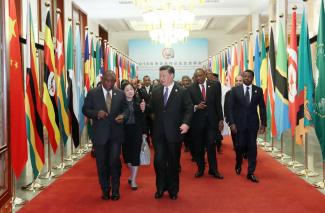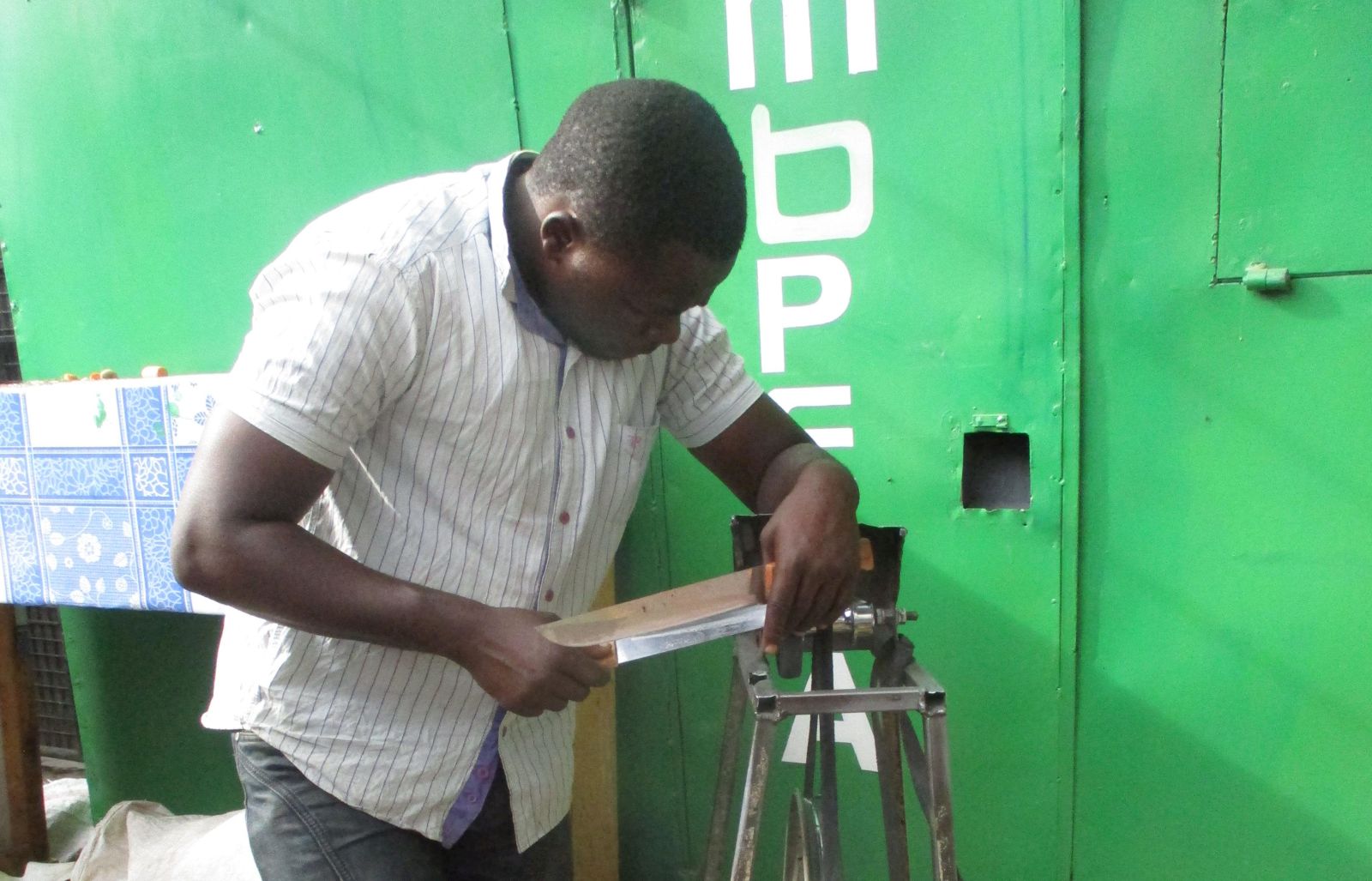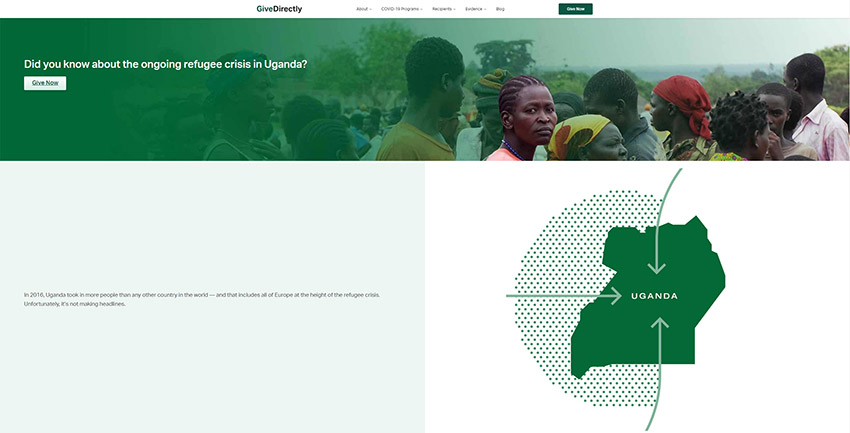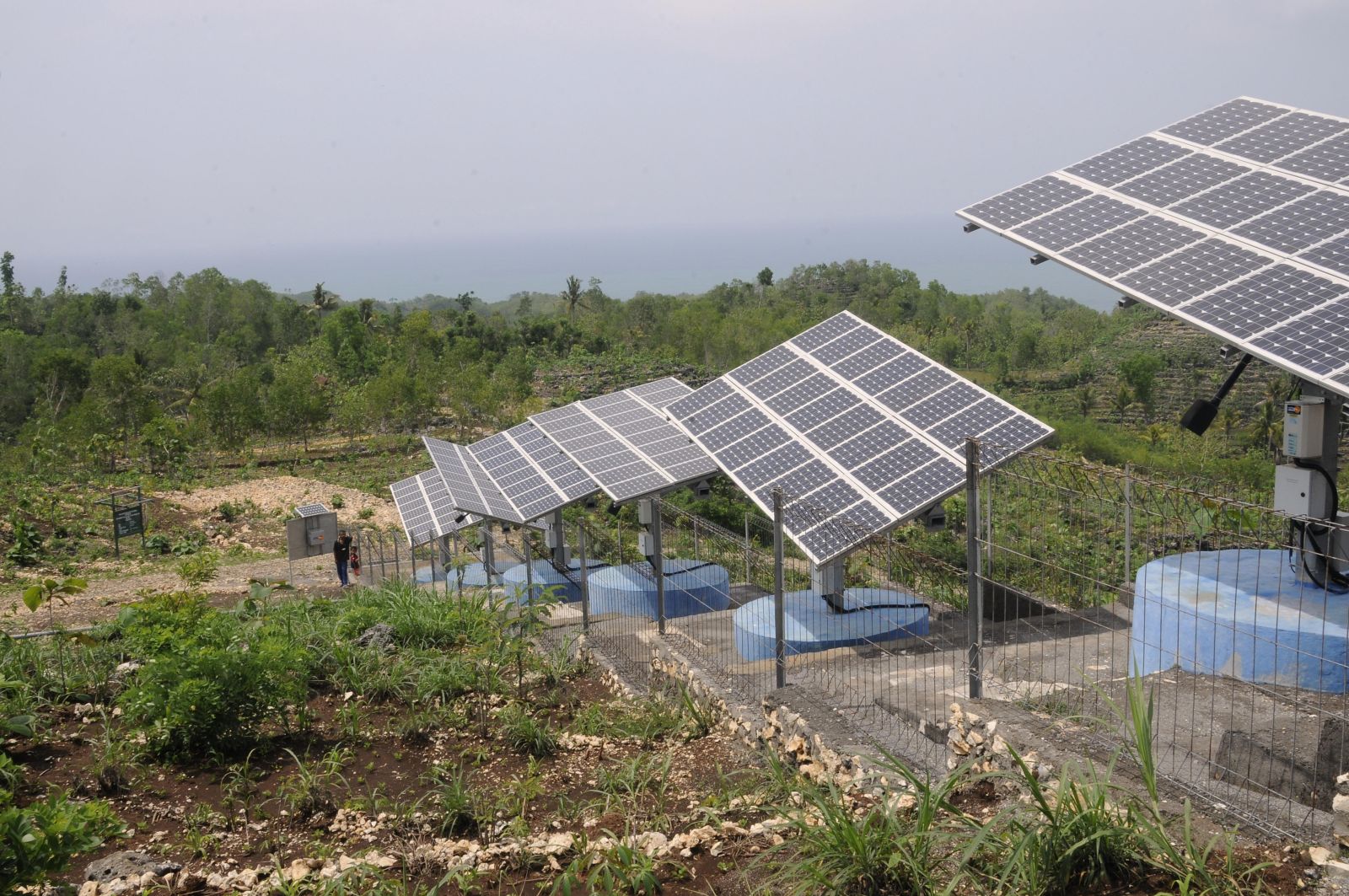Development cooperation
The relentless global decay of democracy

Even before the Ukraine war, recent years have been challenging in terms of international cooperation and democracy promotion. The Covid-19 pandemic halted or even reversed progress made towards the Sustainable Development Goals (SDGs). The health emergency was the top priority for policymakers and international development agencies. At the same time, a 20-year period of democratic backsliding continued, and in some regions was even accelerated by the pandemic.
Long-standing conflicts worsened in Libya and Yemen. Others flared up again in Ethiopia and Azerbaijan. In Afghanistan, the Taliban are back in power after Western withdrawal. Military coups took place in Guinea, Chad, Mali and most recently Burkina Faso (see Vladimir Antwi-Danso on www.dandc.eu).
Moreover, authoritarian populists have been gaining strength in western countries, and while Donald Trump was not re-elected in the USA, his legacy is worrisome. Republicans are doing what they can to make voting harder for minorities, the big lie about President Joe Biden having stolen the election keeps spreading and the masterminds of the insurrection in the Capitol on 6 January 2021 still enjoy impunity. Minority rule looks is increasingly likely in the USA USA (see Katie Cashman and Hans Dembowski on www.dandc.eu). In addition, the two EU members Hungary and Poland are seriously affected by democratic backsliding.
Autocrats and aspiring autocrats across the globe are dismantling democratic mechanisms, freedoms and institutions. This trend poses fundamental questions about what role, if any, development cooperation can play (Niels Keijzer and Christin Hackenesch assessed this issue in 2015 on www.dandc.eu). Western countries’ international-development policies are geared to democracy promotion. Relevant questions are thus: At what point does autocratic rule make cooperation inappropriate and what should policymakers do differently?
Autocratisation typically begins with steps to restrict and control the media, curb academic freedom and reduce the space of civil society. With the aim of polarising people, autocratic forces treat legitimate opponents with disrespect and suggest they are enemies. Once in office, aspiring autocrats use the government machinery to spread further misinformation and delegitimise the opposition. They then typically move on to undermine formal institutions, including the judiciary and election systems.
When democratic backsliding is evident in a partner country, western governments basically have three options. They can try to:
- agree and insist on conditionalities,
- find work-around solutions or
- discontinue cooperation.
As the sanctions imposed on Russia since the start of the Ukraine war show, these issues do not only concern development cooperation. Since western governments have been gearing their international-development policies to democracy promotion for three decades, this field of policymaking is affected in particular. Development cooperation can – and should – play a major role in protecting democracy, and established approaches should be constantly reconsidered.
Conditionalities
In many cases, development cooperation has been made contingent on democratic measures. The problem with this approach is that it is difficult to insist on conditionalities. Imposing sanctions requires a strong political will, consistent application of rule and close attention to the political dynamics in a partner country. This is a challenging agenda even in cases when the conditions of cooperation are specifically spelled out in formal agreements with a partner government.
Sanctions can work as a short-term response to a military coup and reinforce demands for returning to civilian rule and holding elections. However, setting conditions is less effective as a response to a broader trend towards autocratic rule. A big risk is that an international institution does not apply its conditions consistently or stringently enough. Sanctions then become empty threats. Much depends on the willingness of donor governments to pursue a common policy in a sustained and coordinated fashion.
Once democratic backsliding sets in, simply continuing “business as usual” will not help. Indeed, ongoing programmes may actually strengthen autocrats. On the other hand, development cooperation can make a difference if it boosts institutions and political interests with a minimum degree of democratic legitimacy.
Bypassing the national government
Where autocratisation has progressed beyond a certain level, bypassing the national government becomes an option. The idea is to reduce government-to-government cooperation and instead reach out directly to subnational agencies and/or civil-society organisations.
The effectiveness of this approach depends on the national government’s level of control and the degree of repression. It is unlikely to work in contexts where the state is “everywhere” or where civil-society organisations are not permitted to accept external funding. More generally speaking, the effectiveness of work-around solutions depends on the space civil society still enjoys. Of course, partner organisations’ commitment to democratic values matters too. Democratic governments should also take into account that work-around solutions can be expensive. Moreover, there is a risk of resources being “captured” by autocratic forces.
To some extent, engaging in region-wide cooperation may be an option too. For example, reduced involvement in Mali could go along with stronger engagement in ECOWAS (Economic Community of West African States), the regional organisation to which the country belongs. Two important advantages of this approach are that it makes it comparatively easy to re-engage (1) and make use of experiences gained in neighbouring countries (2).
Disengage
However, once despotism is fully in force, cooperation must be reconsidered. If it bolsters an autocratic government, it becomes part of the problem. In such contexts, a final decision to disengage is warranted, and only fundamental support to the country’s people should still continue, notably through humanitarian aid. Support for long-term development should only resume once the political context improves.
It is important to recognise the limitations of development cooperation. It can support and facilitate a developing country’s own change processes, but it cannot fundamentally change the political dynamics.
On the other hand, the trends towards autocratisation makes it even more important to support democracy. Donors can do so if they find appropriate entry points. They must reassess the impact their programmes have on democracy in partner countries, and change course when and as conditions require.
Liberal democracies such as Germany continue to provide long-term support for introducing and strengthening democratic institutions in countries concerned. Germany has long relied on a “civilian power” approach, cooperating with autocratic regimes in the hope that development will lead to a diversification of mutually interdependent institutions, which will eventually lead to democratisation. While such efforts do not directly drive autocratisation, they might nonetheless support the trend. No doubt, policymakers must pay attention to stopping such programmes before they become inappropriate.
Adding to the problems, non-democratic regimes – especially the Chinese government – are increasingly reaching out to developing countries. Beijing is assertively promoting a different development paradigm, according to which a strong government is essential, but democracy and human rights are not. Both however are essential for achieving sustainability for humankind (see Imme Scholz on www.dandc.eu).
Finally, western governments must consider their own dented legitimacy. One reason is that military interventions, which were supposed to support democratisation, have failed spectacularly. The most obvious cases are Afghanistan (see Paul D. Miller on www.dandc.eu) and Mali. The other is that democratic backsliding affects the US and the EU too.
In Warsaw in March, Biden prominently spoke of a conflict between democracy and authoritarianism. He had a point, but he failed to address that authoritarian forces are frightfully strong both in the country he was visiting and the country he represents. He should have acknowledged that the conflict is raging within nations and not simply between them.
Democratic governments must certainly promote democracy abroad. That applies to foreign relations in general, not only development cooperation. EU policymakers would do well to coordinate their responses to autocracy and democratic backsliding. Germany’s Federal Government should help to get such a process started.
Aline Burni is political scientist and researcher in international cooperation at the German Development Institute (Deutsches Institut für Entwicklungspolitik, DIE).
Niels Keijzer is a senior researcher at DIE.
niels.keijzer@die-gdi.de












